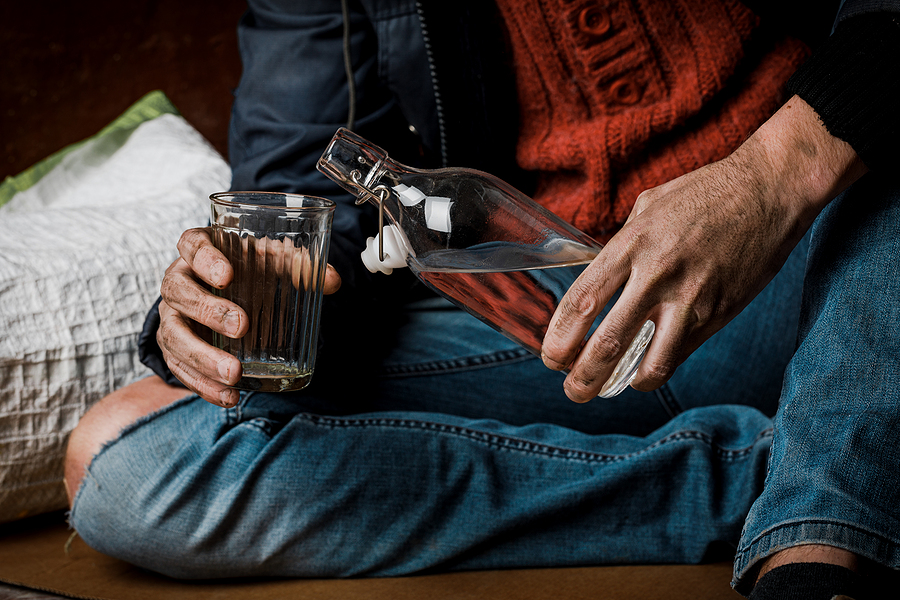Binge drinking often escapes notice until it begins to take over your life. What begins as occasional excess can turn into a pattern that damages health, alters behavior, and fractures relationships. Binge drinking patterns can quietly develop over time. Alcohol use disorder grows from repetition, not one moment. Recognize the warning signs of binge drinking before alcohol tightens its grip. Rehab provides structure and care that help you step away from harmful patterns and build a path forward.
When Binge Drinking Becomes a Concern
Drinking large amounts of alcohol within a short window defines binge drinking. If your habits shift from casual use to more frequent episodes, you may face a deeper problem. The National Institute on Alcohol Abuse notes a strong connection between regular binge drinking and alcohol use disorder. That shift can appear subtle at first—missed work, failed responsibilities, or blackouts—but the consequences deepen with time.
Alcohol does not ask for permission before it dominates your time and mind. If you notice shame, secrecy, or guilt surrounding your alcohol use, take that discomfort seriously. Rehab removes you from environments that encourage binge behavior. It gives you space to understand how alcohol changed your habits and how to reclaim control over your choices.
How Alcohol Use Affects the Brain and Body
Heavy alcohol use disrupts brain chemistry. Thought patterns shift, reactions slow, and judgment fades. Continued use erodes emotional stability and raises aggression, depression, or anxiety. Long-term alcohol use reshapes brain structure and reduces impulse control. These changes make it harder to stop, even when consequences mount.
Physical damage also runs deep. The liver weakens under constant pressure. Heart function falters. Alcohol raises blood pressure and weakens the immune response. Damage to the gut and pancreas causes digestive issues and chronic inflammation. Sleep suffers. The body enters a slow breakdown, often without a loud warning.
Treatment That Targets Behavioral Cycles
Binge drinking patterns rarely happen in isolation. It grows from patterns shaped by stress, environment, and learned behavior. Treatment that targets these cycles gives you the power to replace those habits with new ones that protect your health. Cognitive Behavioral Therapy (CBT) often helps you break the chain. This form of therapy helps you see how thoughts drive behavior and teaches ways to disrupt old triggers.
Treatment plans often include structured support from professionals who watch for relapse risks. These plans also offer space for peer connection, which helps you hear from others who faced the same struggle. Conversations in group therapy build trust and remove shame. You gain perspective by listening and speaking in a safe space.
What Loved Ones Should Watch For
Family members and close friends often notice changes before you do. A shift in mood, lost interest in hobbies, or constant defensiveness often signals deeper trouble. Binge drinking does not always include daily use. Someone may go days without alcohol, then lose control over a single weekend. That cycle still creates damage.
Loved ones may notice poor sleep, weight shifts, missed obligations, or sudden anger. These signs often point to alcohol use disorder. Emotional distance often follows. Someone who once engaged in conversation and shared feelings may grow quiet, withdrawn, or defensive. If drinking interrupts daily life, affects health, or causes conflict, that behavior warrants concern.
Encouragement matters. Support from loved ones strengthens the decision to seek help. Rehab works best when people know they have someone on their side. Your voice may become the reason someone steps away from alcohol. Watch with care, speak with patience, and remain present through the process.
Why Alcohol Rehab Provides Structure and Direction
Rehab removes distractions and creates a structured setting where progress can begin. Alcohol surrounds many people—at parties, in homes, even at work. When you stay in a rehab facility, that access disappears. You step into an environment focused on healing, not temptation.
This structure often marks the first time in months or years when routines support recovery. Each day follows a schedule designed to build habits that replace alcohol. Meals follow regular times. Therapy provides daily focus. Group sessions offer support. Medical staff observe progress and offer care when needed.
Without constant access to alcohol, your body and mind begin to recover. Cravings lose intensity. Sleep improves. Energy returns. You begin to think clearly and see your behavior without distortion. Time away from chaos clears space for reflection and growth.
Contact the Serenity Treatment Center of Louisiana
If alcohol controls your time, thoughts, or choices, that pattern does not need to continue. Binge drinking patterns can be broken with the right support. The Serenity Treatment Center of Louisiana provides care for people ready to step away from binge drinking and alcohol misuse. We welcome you to explore a space focused on structure, progress, and support. Our team listens first, then builds a plan shaped around your needs.
We base our programs on science and human connection. Our work includes medical support, therapy, and tools that help you regain control. We understand the damage that alcohol leaves behind. Our staff stays present through every step. You do not walk this path alone. Contact Serenity Treatment Centers of Louisiana at (225) 361-0899 to get the help that you need.










